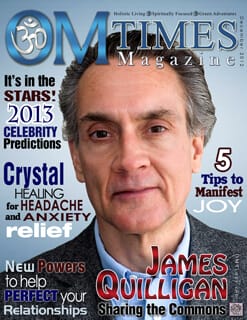Sharing the Commons: Humanity’s Collective Heritage

The enclosure process takes the commons out of the hands of people and gives their production and management to the private sector or government. This has led to the degradation of our commons and many other kinds of problems, like the marginalization of people from their lands, refugees, colonialism and war. So the importance of identifying these different commons is to recognize that each one must be handled differently. And this means acknowledging that, in many cases, they are not being managed effectively and that they provide a vital source of value which is being exploited.
Competition and consumerism
Share International: What effect is competition and consumerism having on the commons?
James Quilligan: It’s having a huge impact. The intervention of both the private sector and the state into people’s commons has reduced their opportunity to share resources. Enclosure and ownership of the commons once referred mainly to people’s lands. Unfortunately, as the result of enclosures, colonialism, privatization and globalization, all aspects of life today are being enclosed: land, knowledge, culture, technology, water, genetics, biodiversity, and public services like infrastructure, health and education. All beings and resources have been turned into virtual commodities. Everything can be bought and sold in the marketplace, including our labor, ideas and creativity. Competition essentially means that the right of ownership by the rich is based on the privatization of the commons and the dispossession of the poor, economically, politically and culturally. This robs people and species of our right to share an ecological, cultural, political and economic space. And when we are all disposable beings without common spaces, we must fight for our survival. So I ask you, how can we share when our surrounding environment does not encourage sharing?
Share International:Are the economic and political systems creating economic slavery or a modern day indentured servitude with the commodification of people and the commons?
James Quilligan: We sometimes characterize the present global regime as neo-liberalism, but I think this term is misleading. It implies that we can somehow get back to the roots of liberalism. It suggests that freedom and equality are still within our grasp in the present system. I’m afraid that we’re way beyond that now and must wake up to the world we’re actually living in. Our language and political recognition are lagging far behind the reality of current events. It seems to me that people are becoming subjects of an emerging social order that author Philip Bobbitt [iii] has called the “Market State”. This Market State promises to increase market freedom and choice by enhancing our economic opportunity as consumers. This means privatizing nearly everything, supposedly for the people’s benefit.
OMTimes Magazine is one of the leading on-line content providers of positivity, wellness and personal empowerment. OMTimes Magazine - Co-Creating a More Conscious Reality



